Christof Lehmann (nsnbc) : The situation in Syria’s eastern, resource-rich Deir Ez-Zor province has become more complicated. The Syrian Arab Army and allies continue their push to uproot ISIS from Deir Ez-Zor while ISIS fighters from Tal Afar in Iraq and Raqqa, Syria, are headed for the province to make a last stand. The situation became even more complicated when local Sunni – Arab tribes, formerly under the command of Ahmed Jarba, joined the predominantly Kurdish, U.S.-backed Syrian Democratic Forces. Deir Ez-Zor has become a key region in a geopolitical game involving Syria, Iraq, Iraqi and Syrian Kurds, Sunni tribes, Iran, Turkey, Russia and the United States.
Syrian and Russian air forces continued operations against ISIS in Syria’s eastern Deir Ez-Zor province. Air strikes were focused on ISIS troops and positions in the countryside and to protect the all-important Deir Ez-Zor air field. The Syrian Air Force carried out a number of air strikes targeting ISIS positions in the surroundings of al-Panorama at the southwestern outskirts of Deir Ez-Zor city, reportedly destroying a weapons’ depot and one of the ISIS main command centers.
Air forces also bombarded supply routes and positions in the neighborhoods of al-Hamidiyeh, al-Howeiqa and al-Rashdiyeh and in the villages and towns of Howeijet Saqer, al-Tibni, al-Shmaitiyeh, Aiyash, al-Kharita and al-Bhailiyeh.
Meanwhile, army units engaged in clashes against ISIS and ISIS-affiliated insurgents in the neighborhoods of al-Howeiqa and al-Rashdiyeh as well as the surroundings of the airport. ISIS units reportedly withdrew from al-Bu Omar village, among them two of their leaders, terrorists Samir Dahham and Abdel Hamid al-Dairi.
The self-proclaimed Islamic State (ISIS / ISIL / Daesh) is expected to increase its number of troops in Deir Ez-Zor province to make what many believe will be a last stand of the group for holding on to some more or less contiguous territory. The U.S.-backed, predominantly Syrian – Kurdish Syrian Democratic Forces have seized about 60 percent of the Islamic States “capital” Raqqa and Iraqi forces are about drive ISIS out of Tal Afar, west of Mosul, some 60 kilometers from the Syrian border. ISIS units from both cities and their surrounding areas are scrambling for Deir Ez-Zor province.
The situation in Deir Ez-Zor became even more complicated after seven battalions from the Sunni Arab Baggara and Shaitat tribes joined the Syrian Democratic Forces (SDF). The move complicates the military situation and increases the medium to long-term probability of armed confrontations between the Russian-backed Syrian Arab Army (SAA) and allies on one hand, and the U.S.-backed Syrian Democratic Forces on the other. The move also complicates the political situation because the tribes – in cooperation with the SDF – will attempt to assert political control in the province, possibly as a bargaining chip in talks on a political solution to end the war.
Arab “rebel fighters” from the Baggara and Shaitat tribes in rural Deir ez-Zor have left the Ahmad Jarba’s Syrian Elite Forces and joined the Deir ez-Zor military council, according to military sources. Ahmad Jarba (a.k.a. Ahmed Jaber, Assi Jaber / Jarber) has been a central figure in the Syrian war since 2011 – 12.
In 2013 and 2014 he represented the “Syrian opposition” in talks about arms deliveries to the Free Syrian Army (FSA) and other groups with the United States and Saudi Arabia.
However, Jarba’s name has become a liability in as much as it has been linked to cooperation with Syria’s al-Qaeda franchise Jabhat al-Nusra, among others. One may suspect that the tribal militia’s decision to leave Jarba’s “elite forces” to join the SDF plays into the hands of the United States; Especially after the US announced that it would stop arming rebels in Syria, it may be convenient to have “rebels” join the SDF instead. It would allow the USA to cooperate with them in the open while avoiding the PR problems linked to cooperating directly with the FSA or FSA-linked militia.
The two tribal militia will be joining the Deir Ez-Zor Military Council which has been established recently by the Kurdish-led and U.S.-backed Syrian Democratic Forces (SDF).
The seven Arab – Sunni tribal battalions issued a joint statement on Friday saying they initially joined Jarba’s forces to participate in battles to free cities and villages from ISIS.
“Unfortunately, many problems accompanied our work and many vague questions surfaced, such as the absence of a project, or a clear work program of these forces and lack of seriousness in the revolutionary work,” the groups said in a joint statement.
“We, the seven battalions of Baggara and Shaitat tribes, split from the Elite Forces and joined the Deir ez-Zor military council and consider the Syrian Democratic Forces [SDF] as our reference and military leadership and we are working under its banner to liberate our city from the Daesh [ISIS] terrorist abomination,” the groups said.
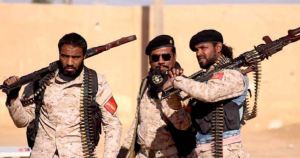 “We thank also the leadership of the Syrian Democratic Forces for receiving us and giving us the opportunity to join their ranks to fight terrorism. We pledge to our martyrs and people, that we will spare no efforts to defend them,” the battalions said.
“We thank also the leadership of the Syrian Democratic Forces for receiving us and giving us the opportunity to join their ranks to fight terrorism. We pledge to our martyrs and people, that we will spare no efforts to defend them,” the battalions said.
The development potentially pits the U.S.-backed SDF against the Russian -backed Syrian Arab Army in Deir Ez-Zor. The province is rich in oil, gas, and minerals as well as water. The development may not be of great importance in the short term. That is, Russia and the USA are likely to be doing their best to prevent direct confrontations and to avoid unwanted bombings of each others “partnered” forces.
It is, however, unlikely that Syria or for that part Russia would accept that Deir Ez-Zor province should become part of the already highly controversial “federal / autonomy” project that is being implemented in areas that are held by the Syrian – Kurdish PYD and its military wings, the YPG and YPJ and the YPG dominated Syrian Democratic Forces.
Deir Ez-Zor province could, however, become a “bargaining chip” that could help force the issue of a place for the PYD – YPG/YPJ and other Syrian Kurds at the negotiating tables in Geneva and Astana. Embracing a growing number of Arab forces under the SDF umbrella could, arguably, also be used to convince Turkey that the SDF (and with it the Syrian Kurds) should he their place in Geneva and Astana. Turkey considers the PYD – YPG/YPJ as terrorist organizations allied and on par with Turkey’s outlawed Kurdistan Worker’s Party (PKK).
Control over Deir Ez-Zor province could also become an issue that may determine the feasibility of an independent Kurdish state in northern Iraq.
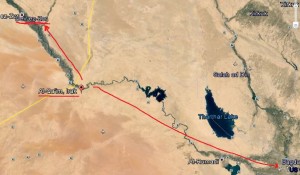 An independence referendum in Iraq’s Kurdistan Autonomous Region (KAR) and additional areas with large Kurdish populations, has been scheduled for September 25. Turkey’s AKP government is opposed to the establishment of a Kurdish state. However, the KAR government is disputing a decision made by the Iraqi government in Baghdad to build an oil pipeline from Kirkuk to Iran, potentially leaving the oil pipeline from Kirkuk to Turkey’s Ceyhan obsolete.
An independence referendum in Iraq’s Kurdistan Autonomous Region (KAR) and additional areas with large Kurdish populations, has been scheduled for September 25. Turkey’s AKP government is opposed to the establishment of a Kurdish state. However, the KAR government is disputing a decision made by the Iraqi government in Baghdad to build an oil pipeline from Kirkuk to Iran, potentially leaving the oil pipeline from Kirkuk to Turkey’s Ceyhan obsolete.
The Kurdistan Regional Government (KRG), in 2013 – 16, laundered large quantities of the Islamic State’s oil from Deir Ez-Zor via Kirkuk and Turkey to be sold on to the international markets. The Bonanza was in part fueled by the EU’s decision from April 2013 to end its ban on the import of Syrian oil provided that it came from “rebel-held territories”. Ankara would probably be more willing to accept an independent Iraqi Kurdistan if it meant that it wouldn’t have to rely in Iran and an increasingly Iranian controlled Iraqi government in Baghdad.
The United States fundamentally agrees with the establishment of an independent Kurdish state in Iraq, on the basis of Iraq’s constitution. However, the U.S. administration would like to see the independence referendum postponed until the end of anti-ISIS operations in Iraq. Iran opposes the establishment of a Kurdish state and the referendum, fearing the push for Kurdish independence will fuel the already ongoing armed conflict between Kurdish groups and the Iranian Islamic Revolutionary Forces in the northwest of the country. Russia, for its part, stated that it supports the Kurdistan Autonomous Region’s plan to hold a referendum and a move towards independence on the basis of the Constitution.
CH/L – nsnbc 27.08.2017
Source Article from https://nsnbc.me/2017/08/27/syrias-deir-ez-zor-province-a-new-frontline-between-russia-usa-turkey-and-iran/
Related posts:
Views: 0
 RSS Feed
RSS Feed

















 August 27th, 2017
August 27th, 2017  Awake Goy
Awake Goy 










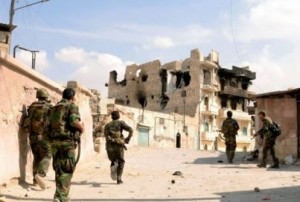
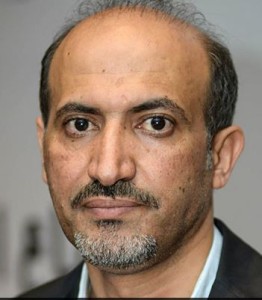
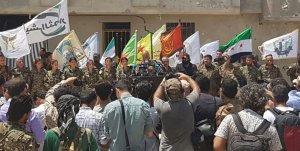
 Posted in
Posted in  Tags:
Tags: 
















